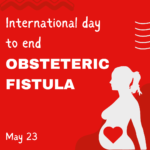By Robyn Smith
Jeanette Nobantu Kenya Malgas sits on her sister’s bed, a strange mix of pride and sadness in her eyes as she surveys the room.
“She had gathered her children around her to pray that evening, she was sitting here, just like I am. They prayed together but by the time they said Amen, she didn’t come back from the prayer.”
Malgas’ 51-year-old sister, Ntombekhaya “Ntosh” Nyama-Plati was declared dead on 21 November 2022, just two days before her birthday, having suffered a heart attack during the family’s nightly prayer session. It was a huge blow not only to her family but to the dozens of women whose lives she touched.
Just three years earlier, Nyama-Plati had been living in a leaking tin shack in Gugulethu, Cape Town. When she fell asleep on January 1, 2019, she had a dream – so vivid and convincing – it jerked her awake at 4 a.m. and had her reaching for someone to share it with.
“My phone rang and it was her, saying she’s at the gate. I was confused because she’d just left my house a few hours earlier. We’d celebrated New Year’s together.” Malgas said.
Nyama-Plati told her sister she’d had a dream they should gather women in the community and start building each other houses. Malgas was perplexed and slightly amused, but allowed her younger sibling to continue.
Nyama-Plati explained that women in the community had been pooling their money in monthly “stokvels” (informal community savings clubs) for decades to buy groceries or clothing, but still found themselves living in poverty, without ever owning a house to call their own and leaving nothing behind for their children. Why not pool money to build decent homes?
The sisters put the idea on Facebook and within hours, dozens of women between the ages of 25 and 72 had responded. A week later, the Masakhe Ladies Stokvel was born. “Masakhe” is an isiXhosa word that translates to “let’s build”.
“When the Stokvel officially started, we had 40 ladies. We opened a bank account and each of us contributed 2,500 rand (about US$135) every month. Each month, one lady received the total amount of 100,000 rand (approximately US$5,400). They had to immediately use it for building materials and builders, not for food, clothes or cars,” Malgas explained.
“Construction normally takes three to four weeks because the next month, we must start building another house.”
Within three years, the women had built 36 new houses and completed renovations or improvements on four existing homes in Gugulethu and surrounding areas.
“We did great!” Malgas beamed as she walked out of the bedroom and into a kitchen with shiny red cupboards and sparkling appliances in a double storey house in Gugulethu, where her sister’s tin shack once stood.
“I wish she’d wake up,” Malgas said, before she went downstairs, where Nyama-Plati had used part of her Stokvel savings to build rental units and a shop for an extra income.
The Masakhe Ladies Stokvel has remained strong, even after Nyama-Plati’s untimely death. It’s registered under South Africa’s Companies and Intellectual Property Commission, with Malgas as co-founder and director, and Ondela Malgas and Malgas’ daughter, Gabriella Kenya, as directors.
Malgas encouraged her daughter to join the stokvel when she was 25. For her, it’s been the gift that keeps giving.
“As one of the youngest members of Masakhe, I can safely say joining the stokvel was one of the best things I ever did for myself because today, I own two flats and have an extra stream of income,” Kenya said.
Malgas is clear that the Masakhe Ladies Stokvel was never just about building decent houses. It was, and still is, about uplifting and empowering women to dig themselves out of poverty and lay a solid foundation for generations to come. To continue building, one brick at a time. For many others, it’s been a lifeline.
For Patricia George, it was a lifeline she never knew she needed.
George shared her experience in the courtyard of her home in Nyanga. She’s on crutches, calling for her son to bring her wheelchair. George had just signed up for the stokvel when she was hit by a minivan while walking to a nearby shop. She spent the next seven months in hospitals and rehabilitation facilities being treated for a serious spinal injury.
“It was hard, but I knew I had been given a second chance to live. I used my children’s government grants and the little my husband was earning at the time to continue paying the stokvel,” she recalled.
In August 2022, George received her payout and built two rental units behind her house. She’s since built another four rental units from the income of the first two. She’s also built a gym and bought a treadmill, in the hope she can exercise and walk unaided one day. In the meantime, George is now saving the rental money from her six units to renovate her house so it can be wheelchair-friendly.
Ntombekhaya Nyama-Plati would be proud. Not only did the Masakhe Ladies Stokvel achieve her dream of building decent houses for women, they’ve also attracted the attention of the government and small businesses. These days, they’re receiving support and training in construction so they can do the building themselves.
The Stokvel has also registered other cooperatives to teach skills like brickmaking, carpentry, IT and healthcare. And they’re raising funds to expand Masakhe. Malgas believes more communities should follow the Masakhe Ladies Stokvel model.
“This housing backlog affects people all over the world. It’s a crisis that is not easily solved. But Masakhe’s way of doing stokvel, people grouping themselves and building themselves, is better than waiting on databases forever,” she explained.
According to South Africa’s national statistics service, Stats SA, there are more than 2.2 million people on the country’s housing waiting list.
“It is already the case that most housing in Africa is produced by people themselves. A lack of government capacity and a mismatch between people’s earnings and what formal private housing costs means that people have largely had to rely on themselves and their communities to build homes,” urban policy researcher at Ndifuna Ukwazi, Nick Budlender, explained.
“However, governments could do a lot more to support people so that they build safe, decent, and secure housing that truly meets their needs and improves their lives,” Budlender added.
Academic, Kwame Addae-Dapaah, also believes ordinary people are the answer to the housing crisis in Africa.
“Unleashing the latent potential of the urban poor of Africa to build cheap houses for themselves – something no-one else can do for them – is the most pragmatic, socially, culturally, economically and environmentally feasible way of solving the urban housing affordability problem” writes Addae-Dapaah in his research paper “Urban Housing Affordability Problem in Africa: A Search for Pragmatic Solution?”.
On a continent facing a housing shortfall of over 51 million units, Malgas’ message to fellow women is life-transforming:
“Don’t wait on the government. Organize yourselves. Do your thing. Women can do it. Women are the world. Women are the wheels.”
bird story agency
Jeanette Nobantu Kenya Malgas reflects on the legacy of her late sister, Ntombekhaya Nyama-Plati, who died in November 2022 after a heart attack during a family prayer. Nyama-Plati, once living in a tin shack in Gugulethu, Cape Town, had a transformative dream in 2019 that led to the creation of the Masakhe Ladies Stokvel. This initiative gathered local women to pool resources and construct homes, moving beyond traditional savings clubs. Within three years, they built and renovated numerous houses, significantly impacting their community.
The stokvel thrived even after Nyama-Plati's death, expanding to provide women with additional skills in construction and other trades. Malgas, now a director, advocates for self-reliance in tackling housing issues, emphasizing women's capability to build and improve their own communities. This grassroots movement has garnered government and business support, demonstrating a practical model for addressing housing shortages across Africa.






